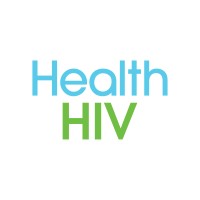Company Details
pennsylvania-office-of-rural-health
3
80
92312
psu.edu
0
PEN_1316430
In-progress

Pennsylvania Office of Rural Health Company CyberSecurity Posture
psu.eduThe Pennsylvania Office of Rural Health (PORH) partners with federal and state governments and Penn State University to enhance rural health in Pennsylvania. Established in 1991 and funded by the Federal Office of Rural Health Policy and the Pennsylvania Department of Health, PORH provides coordination, technical assistance, and healthcare provider recruitment. Specializing in rural health, agricultural safety, oral health, and community development, PORH ensures access to high-quality, affordable healthcare for rural Pennsylvanians. Our mission is to improve rural health and be recognized as a premier rural health organization in Pennsylvania and one of the most effective in the nation.
Company Details
pennsylvania-office-of-rural-health
3
80
92312
psu.edu
0
PEN_1316430
In-progress
Between 750 and 799

 PORH Global Score (TPRM)
PORH Global Score (TPRM)XXXX



No incidents recorded for Pennsylvania Office of Rural Health in 2025.
No incidents recorded for Pennsylvania Office of Rural Health in 2025.
No incidents recorded for Pennsylvania Office of Rural Health in 2025.
PORH cyber incidents detection timeline including parent company and subsidiaries

The Pennsylvania Office of Rural Health (PORH) partners with federal and state governments and Penn State University to enhance rural health in Pennsylvania. Established in 1991 and funded by the Federal Office of Rural Health Policy and the Pennsylvania Department of Health, PORH provides coordination, technical assistance, and healthcare provider recruitment. Specializing in rural health, agricultural safety, oral health, and community development, PORH ensures access to high-quality, affordable healthcare for rural Pennsylvanians. Our mission is to improve rural health and be recognized as a premier rural health organization in Pennsylvania and one of the most effective in the nation.


MDIC is the one place where industry, non-profits, academia & government can collaborate to make patient access to new medical device technologies faster, safer and more cost-effective. MDIC is a public-private partnership facilitating collaboration within the medical device industry. We coordinat

Rural Health Tasmania was established in 2001 and is the recipient of funds from government and sponsorship. RHT is an incorporated, charitable institution with deductible gift register (DGR) status. Rural Health Tasmania Inc. was developed in response to unmet health and well-being needs in our

The Harvard Global Orthopaedics Collaborative (HGOC) is a group of Harvard-affiliated orthopaedic surgery faculty and trainees who share a passion for improving access to musculoskeletal health care globally. We engage in clinical research, surgical education, care delivery, and health systems devel

ProEd Regulatory is the HCG Regulatory Powerhouse. We help life sciences companies communicate data in ways that matter to healthcare providers, the patients they treat, and the regulators who protect them. Our passion and energy help accelerate product approvals, increase physicians' and healthcar

HealthHIV is a national non-profit working with healthcare organizations, communities, and providers to advance effective HIV, HCV, STI and LGBTQ health care, harm reduction and health equity through education and training, technical assistance and capacity building, advocacy, communications, and he

🌱 𝐂𝐞𝐧𝐭𝐫𝐞 𝐏𝐫𝐞́𝐯𝐞𝐧𝐭𝐢𝐨𝐧 𝐒𝐚𝐧𝐭𝐞́ 𝐋𝐨𝐧𝐠𝐞́𝐯𝐢𝐭𝐞́ - 𝐈𝐧𝐬𝐭𝐢𝐭𝐮𝐭 𝐏𝐚𝐬𝐭𝐞𝐮𝐫 𝐝𝐞 𝐋𝐢𝐥𝐥𝐞 👩⚕️ 𝐀̀ 𝐩𝐫𝐨𝐩𝐨𝐬 𝐝𝐞 𝐧𝐨𝐮𝐬 : Situé au sein de l'Institut Pasteur de Lille, notre Centre Prévention Santé Longévité incarne l'excellence dans le domaine de la recherche et de la prévention en santé publique. Nous accompagnons les indi
.png)
Microsoft is launching claims denial navigator, an AI-powered tool developed with rural health leaders to help hospitals handle denied...
The Trump administration on Monday kicked off a scramble among the 50 states for a slice of a new $50 billion fund for rural health care,...
September 15, 2025 | Catherine Jones. ASTHO Federal Health Policy Update In early July, ahead of final votes on the One Big Beautiful Bill Act (full text...
Major data breaches have been reported by Park Dental and Dental Specialists of Minnesota, which involved the protected health information...
Many health systems and healthcare companies have suffered cyberattacks, or they've been affected by a breach of a vendor in the first six...

Explore insights on cybersecurity incidents, risk posture, and Rankiteo's assessments.
The official website of Pennsylvania Office of Rural Health is https://www.porh.psu.edu/about-porh/.
According to Rankiteo, Pennsylvania Office of Rural Health’s AI-generated cybersecurity score is 761, reflecting their Fair security posture.
According to Rankiteo, Pennsylvania Office of Rural Health currently holds 0 security badges, indicating that no recognized compliance certifications are currently verified for the organization.
According to Rankiteo, Pennsylvania Office of Rural Health is not certified under SOC 2 Type 1.
According to Rankiteo, Pennsylvania Office of Rural Health does not hold a SOC 2 Type 2 certification.
According to Rankiteo, Pennsylvania Office of Rural Health is not listed as GDPR compliant.
According to Rankiteo, Pennsylvania Office of Rural Health does not currently maintain PCI DSS compliance.
According to Rankiteo, Pennsylvania Office of Rural Health is not compliant with HIPAA regulations.
According to Rankiteo,Pennsylvania Office of Rural Health is not certified under ISO 27001, indicating the absence of a formally recognized information security management framework.
Pennsylvania Office of Rural Health operates primarily in the Public Health industry.
Pennsylvania Office of Rural Health employs approximately 3 people worldwide.
Pennsylvania Office of Rural Health presently has no subsidiaries across any sectors.
Pennsylvania Office of Rural Health’s official LinkedIn profile has approximately 80 followers.
Pennsylvania Office of Rural Health is classified under the NAICS code 92312, which corresponds to Administration of Public Health Programs.
No, Pennsylvania Office of Rural Health does not have a profile on Crunchbase.
Yes, Pennsylvania Office of Rural Health maintains an official LinkedIn profile, which is actively utilized for branding and talent engagement, which can be accessed here: https://www.linkedin.com/company/pennsylvania-office-of-rural-health.
As of November 28, 2025, Rankiteo reports that Pennsylvania Office of Rural Health has not experienced any cybersecurity incidents.
Pennsylvania Office of Rural Health has an estimated 280 peer or competitor companies worldwide.
Total Incidents: According to Rankiteo, Pennsylvania Office of Rural Health has faced 0 incidents in the past.
Incident Types: The types of cybersecurity incidents that have occurred include .
.png)
Angular is a development platform for building mobile and desktop web applications using TypeScript/JavaScript and other languages. Prior to versions 19.2.16, 20.3.14, and 21.0.1, there is a XSRF token leakage via protocol-relative URLs in angular HTTP clients. The vulnerability is a Credential Leak by App Logic that leads to the unauthorized disclosure of the Cross-Site Request Forgery (XSRF) token to an attacker-controlled domain. Angular's HttpClient has a built-in XSRF protection mechanism that works by checking if a request URL starts with a protocol (http:// or https://) to determine if it is cross-origin. If the URL starts with protocol-relative URL (//), it is incorrectly treated as a same-origin request, and the XSRF token is automatically added to the X-XSRF-TOKEN header. This issue has been patched in versions 19.2.16, 20.3.14, and 21.0.1. A workaround for this issue involves avoiding using protocol-relative URLs (URLs starting with //) in HttpClient requests. All backend communication URLs should be hardcoded as relative paths (starting with a single /) or fully qualified, trusted absolute URLs.
Forge (also called `node-forge`) is a native implementation of Transport Layer Security in JavaScript. An Uncontrolled Recursion vulnerability in node-forge versions 1.3.1 and below enables remote, unauthenticated attackers to craft deep ASN.1 structures that trigger unbounded recursive parsing. This leads to a Denial-of-Service (DoS) via stack exhaustion when parsing untrusted DER inputs. This issue has been patched in version 1.3.2.
Forge (also called `node-forge`) is a native implementation of Transport Layer Security in JavaScript. An Integer Overflow vulnerability in node-forge versions 1.3.1 and below enables remote, unauthenticated attackers to craft ASN.1 structures containing OIDs with oversized arcs. These arcs may be decoded as smaller, trusted OIDs due to 32-bit bitwise truncation, enabling the bypass of downstream OID-based security decisions. This issue has been patched in version 1.3.2.
Suricata is a network IDS, IPS and NSM engine developed by the OISF (Open Information Security Foundation) and the Suricata community. Prior to versions 7.0.13 and 8.0.2, working with large buffers in Lua scripts can lead to a stack overflow. Users of Lua rules and output scripts may be affected when working with large buffers. This includes a rule passing a large buffer to a Lua script. This issue has been patched in versions 7.0.13 and 8.0.2. A workaround for this issue involves disabling Lua rules and output scripts, or making sure limits, such as stream.depth.reassembly and HTTP response body limits (response-body-limit), are set to less than half the stack size.
Suricata is a network IDS, IPS and NSM engine developed by the OISF (Open Information Security Foundation) and the Suricata community. In versions from 8.0.0 to before 8.0.2, a NULL dereference can occur when the entropy keyword is used in conjunction with base64_data. This issue has been patched in version 8.0.2. A workaround involves disabling rules that use entropy in conjunction with base64_data.

Get company history
















Every week, Rankiteo analyzes billions of signals to give organizations a sharper, faster view of emerging risks. With deeper, more actionable intelligence at their fingertips, security teams can outpace threat actors, respond instantly to Zero-Day attacks, and dramatically shrink their risk exposure window.
Identify exposed access points, detect misconfigured SSL certificates, and uncover vulnerabilities across the network infrastructure.
Gain visibility into the software components used within an organization to detect vulnerabilities, manage risk, and ensure supply chain security.
Monitor and manage all IT assets and their configurations to ensure accurate, real-time visibility across the company's technology environment.
Leverage real-time insights on active threats, malware campaigns, and emerging vulnerabilities to proactively defend against evolving cyberattacks.




